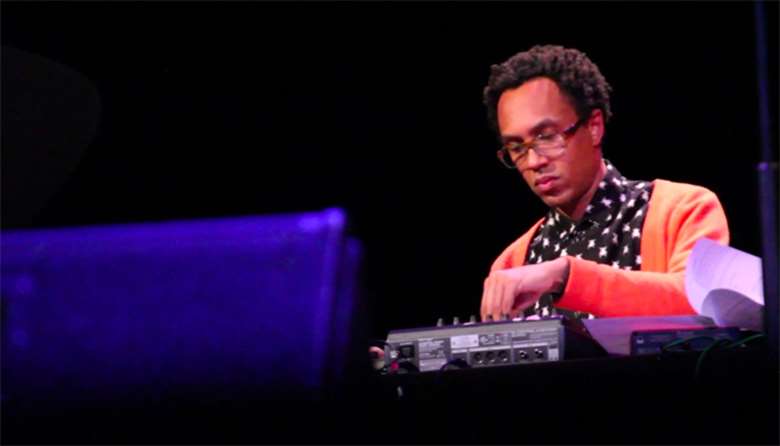Jace Clayton gets rebellious for his Julius Eastman Memorial Dinner at LSO St Luke’s
Wednesday, September 13, 2017
Among the more obscure exponents of minimalism and classical avant-garde, the late Julius Eastman was nonetheless a compelling composer and all round agent provocateur whose oeuvre resonates loudly in the 21st century.

Titles such as 'Gay Guerilla' and 'Evil Nigger' addressed issues of homophobia as well as racial discrimination in an America that still feels the need to search and destroy its bogey man on a regular basis, and Eastman's absolute refusal to compromise on his identity and self-empowerment – to be "fully homosexual, fully black, fully human", as he said himself – would have most probably seen him continue to write music with sub-texts neither neutral nor neutered by current concerns for decorum. He was dangerous and endangered.
Producer/DJ/writer Jace Clayton's celebration of the artist's legacy materialised on a studio project, 2013's The Julius Eastman Memory Depot, and now this live show proves an engrossing and imaginative evocation of the composer's spirit as well as a smart rendition of his signature pieces. While the music itself is nothing if not interesting Clayton succeeds in creating an eldritch ambiance by way of simple but canny dramaturgy and performance art that significantly lifts the evening beyond a straight and overly reverential form of tribute.
Occupying the central berth on the podium, Clayton, armed with laptop and mixing desk, faces the crowd while Emily Manzo and David Friend are sat at pianos either side of him on a slightly lower level, their backs to the audience. Throughout the performance the two will glance sideways at each other with Clayton in the middle, creating an understated sense of triangular fire that complements the music.
Indeed, there are many moments when the energy in the room boldly combusts, as the motifs oscillating from the two keyboards gather a momentum that is powerfully served by the clear acoustics of the venue. While the relatively short, tremulous phrases and insistent repetition of the parts may mark Eastman out as a minimalist there is a considerable amount of ingenuity melodically as well as metrically to make the argument that it was by no means a definitive term for his aesthetic.
The relentless, at times pummeling trills and fully punched clusters of notes create a free-wheel groove that upholds a long lineage of jazz pianists whose dynamism came gloriously to the fore in drummer-less settings. When the two pianists hammer simultaneously at opposite ends of the tonal spectrum, Friend shudderingly low and Manzo piercingly high, we can hear how Eastman was not a million miles from Matthew Shipp's chiaroscuro skews on Thelonious Monk. There is a sharp intake of breath among certain audience members as the height of the middle register onslaught, which is wrapped in an electric stream of subtle but resonant processing and re-mouldings of chords by Clayton. His slide, squelch and slither of beats impart a pleasing earthiness into the ether of acoustic sounds.
Then a brilliant theatrical twist occurs. Clayton makes a Skype call to vocalist Arooj Aftab who appears on a giant screen and proceeds to interview him for a position at the American Society Of Eastman Supporters. The exchange is a hilariously spiky parody on the formality of the job application that nonetheless makes several shrewd observations on the minefield of identity politics and big business, right down to Clayton wondering whether a stint working at Starbucks stands him in good stead for the challenges of filtering music into commercial environments. The segment ends with some haunting sung lines on equality by Aftab which then gives way to a resumption of the two pianos in a more introspective, plaintive mode, with lower tempos and needling, incisive lines that playfully alternate disjunction and conjunction.
Eastman's existence was a tragic one in many ways, as he died impoverished with several of his precious scores lost, but this Memorial Dinner, with its wit and wisecracks that inflect the 'Crazy Nigger' towards a quasi-Pryorist trope of 'that nigger's crazy' has the iron discipline and steely invention that serves its subject as faithfully as possible.
– Kevin Le Gendre